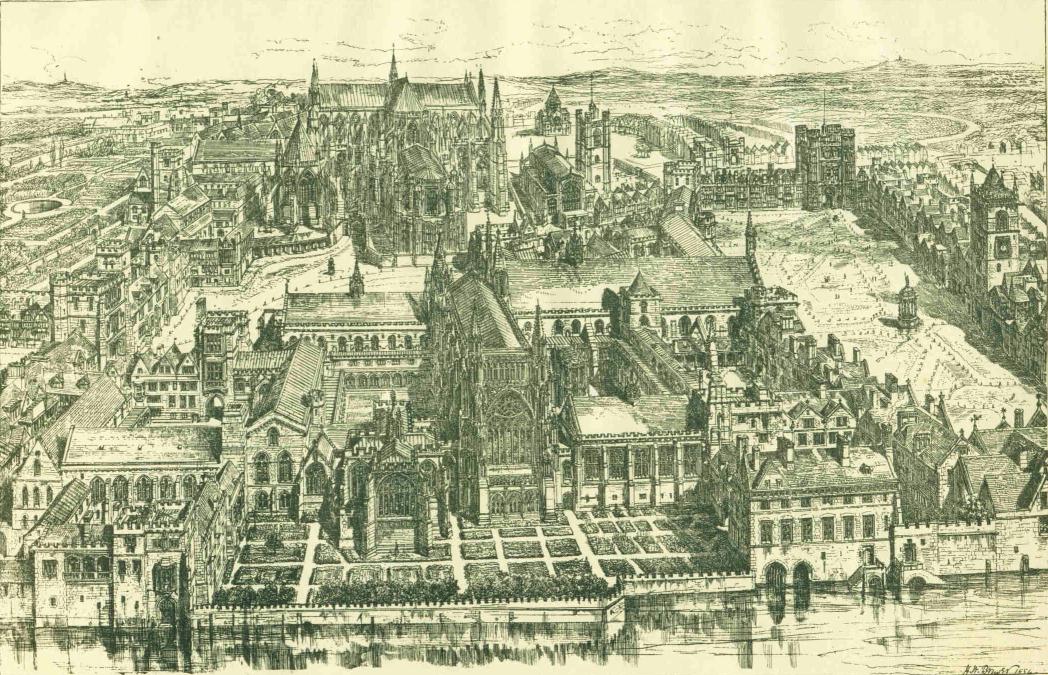Philip Baker, former Research Fellow of the History of Parliament and Lecturer at Oxford Brookes University, explains the background to and completion of a History of Parliament project for which he was Editor. This new online resource provides access to primary source material relating to the House of Commons during the Parliament of 1624.
394 years ago today, what was to be the final Parliament of King James I opened at Westminster. Unfortunately, bad weather meant that around half of the members hadn’t yet arrived and so the assembly was adjourned the same day. The 1624 Parliament eventually sat for some 80 days, however, and the History of Parliament is proud to announce today, on the anniversary of its opening, the completion of its project to provide free online access to the Commons’ debates of the entire Parliament. Hosted by British History Online, Proceedings in Parliament 1624: The House of Commons consists of around 800,000 words of political debate, religious argument, legal wrangling and legislative action from the so-called ‘Happy Parliament’.

Palace of Westminster in the 16th century. Source: Wikimedia Commons.
Set against the European backdrop of the Thirty Years War (1618-1648), and situated between the earlier, often rumbustious assemblies of James and the even more turbulent ones of Charles I that followed it, the Parliament is perhaps most notable for two things. The first is the unsuccessful attempt by Charles (as Prince of Wales) and the Duke of Buckingham to promote a war against Spain following Charles’ humiliation by the Spanish in his attempts to woo the Spanish Infanta. The second is that the Parliament saw an incredible seventy-three acts reach the statute book, the most in a single session since the reign of Henry VIII and almost the first notable legislation passed since 1610.
The proceedings themselves bring together for the first time some twenty manuscript sources that are scattered throughout England and America, the vast majority of which have never before been published. While some are fair hand copies of notes, others are certainly more difficult to read in their original form. Both Edward Nicholas and Sir Nathaniel Rich employed ‘speed writing’ techniques – a combination of shorthand symbols, abbreviations and longhand – the Star Chamber lawyer John Hawarde wrote in the Law French of the court system, while the appalling handwriting of John Lowther is a challenge for even experts of the period. Although the diary of the Staffordshire barrister Richard Dyott is in an extremely clear hand, large parts of it are now illegible even under UV light. It was placed in a safe in London during World War II, which did an excellent job of protecting it from the bombs of the Luftwaffe, but was rather less successful in preventing it from becoming seriously water-damaged.
Work on an edition of the proceedings of the 1624 Parliament actually began in America almost a century ago, under the guidance of the great parliamentary historian Wallace Notestein. Further research was undertaken in the US by Robert Ruigh and Mark Kennedy, and the project was subsequently taken over by the Yale Center for Parliamentary History. The 1624 materials were eventually transferred to the History of Parliament, which began working on them in 2012, generously funded by the Leverhulme Trust, the Friends of the Yale Center for Parliamentary History and the Mercers’ Company of the City of London. On this day in 2015, the first in a progressive release of the proceedings appeared online, which culminates today in the release of the proceedings for the final month of the Parliament.
The publication of Proceedings in Parliament 1624: The House of Commons fills a considerable hole in early modern parliamentary history, as it means that a composite edition of materials on all of the Tudor and early Stuart Parliaments is available for the first time. But used in tandem with the articles already published online from the History’s volumes on The House of Commons, 1604-29 and those forthcoming on The House of Lords, 1604-29, it also offers the prospect of a connected set of electronic resources which will enable scholars to dig more deeply and more easily than ever before into the vexed political world of the early modern Stuarts.
This post was first published at the History of Parliament blog.

